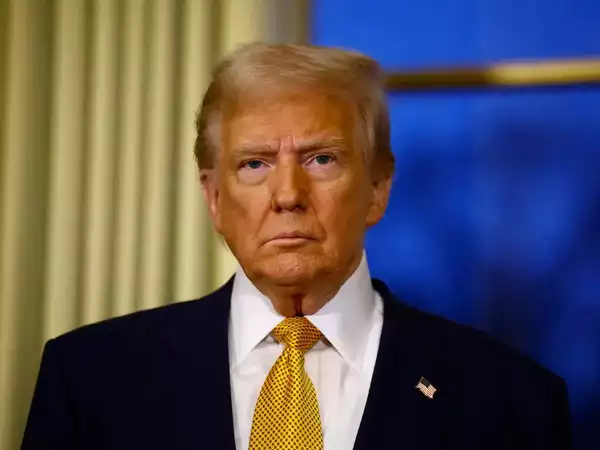Supreme Court rejects Trump’s bid to delay sentencing in his New York hush money case
President-elect Donald Trump’s last attempt to halt his New York hush-money case was denied by a narrowly divided Supreme Court on Thursday, paving the path for his sentencing for felonies just days before he takes office again. Judge Juan M. Merchan will sentence Trump on Friday after the court’s 5-4 ruling. Trump was found guilty of trying to conceal a $130,000 hush money payment to porn star Stormy Daniels, according to the prosecution. Trump has denied any wrongdoing or any connection to Daniels.
Along with the court’s three liberals, Chief Justice John Roberts and Justice Amy Coney Barrett denied his emergency motion. Since Merchan has stated that he will not impose jail time, fines, or probation on Trump, the majority concluded that his punishment would not be an unmanageable burden during the presidential transition. The majority of justices decided that Trump’s claims could be resolved through the standard appeals procedure, despite his lawyers’ request to postpone punishment while he fights the verdict. According to the order, Justices Clarence Thomas, Samuel Alito, Neil Gorsuch, and Brett Kavanaugh would have postponed the sentencing.

Trump has won other significant triumphs in the past year thanks to the conservative majority on the high court, which in a ruling granted him immunity from prosecution for some actions he performed while in office and prevented states from removing him off the ballot due to the 2021 Capitol attack that delayed an election-interference case against him. After he assumes office, the justices may also have to consider other aspects of the comprehensive conservative reforms he has pledged. Trump’s lawyers have claimed in the New York case that the evidence used in the Manhattan trial went against the Supreme Court’s decision from last summer, which granted Trump wide immunity from prosecution for actions he committed while in office.
In order to prevent Trump from being distracted during the White House transition, they have at least stated that the sentencing should be postponed while their appeals are being processed. The prosecution resisted, arguing that the court had no justification for taking the “extraordinary step” of getting involved in a state matter at this time. A halt would probably mean advancing the case, and Trump’s lawyers have not demonstrated that an hour-long virtual hearing would cause significant disruption. Trump’s lawyers have not demonstrated that a virtual hearing lasting an hour would cause significant disruption, and a halt would probably result in the case being postponed past the inauguration on January 20th, delaying sentencing for years, if it occurs at all.
After New York courts, including the state’s top court, on Thursday refused to postpone sentencing, Trump’s lawyers turned to the justices. The convictions on 34 felony charges of fabricating company records were related to personal affairs rather than Trump’s official presidential actions, according to New York judges. Daniels claims that in 2006, she had sex with Trump. He disputes it. Sentencing Trump now would be a “grave injustice” that might upset the legal proceedings, according to Trump’s lawyers, who referred to the case as politically motivated.
Sentencing Trump now would be a “grave injustice” that may sabotage the presidential transition as the Republican is ready to retake the White House, according to Trump’s lawyers, who referred to the case as politically motivated. Trump’s choice for the position of solicitor general, D. John Sauer, represents the government in the high court. The Supreme Court’s immunity ruling came after Sauer argued for Trump in a different criminal lawsuit accusing him of attempting to overturn the 2020 election results. Citing that ruling, defense lawyers contended that presidential immunity should have protected some of the evidence used against him in the hush money trial. This includes social media posts from during his tenure in office as well as evidence from some White House aides.
The ruling was made a day after Justice Alito acknowledged receiving a call from Trump the day before the president-elect’s attorneys submitted their urgent request to the Supreme Court. Even though the top Democrat on the House Judiciary Committee called on Alito to disqualify himself, the justice clarified that the call was about a clerk and had nothing to do with any ongoing or forthcoming cases.


Comments are closed, but trackbacks and pingbacks are open.